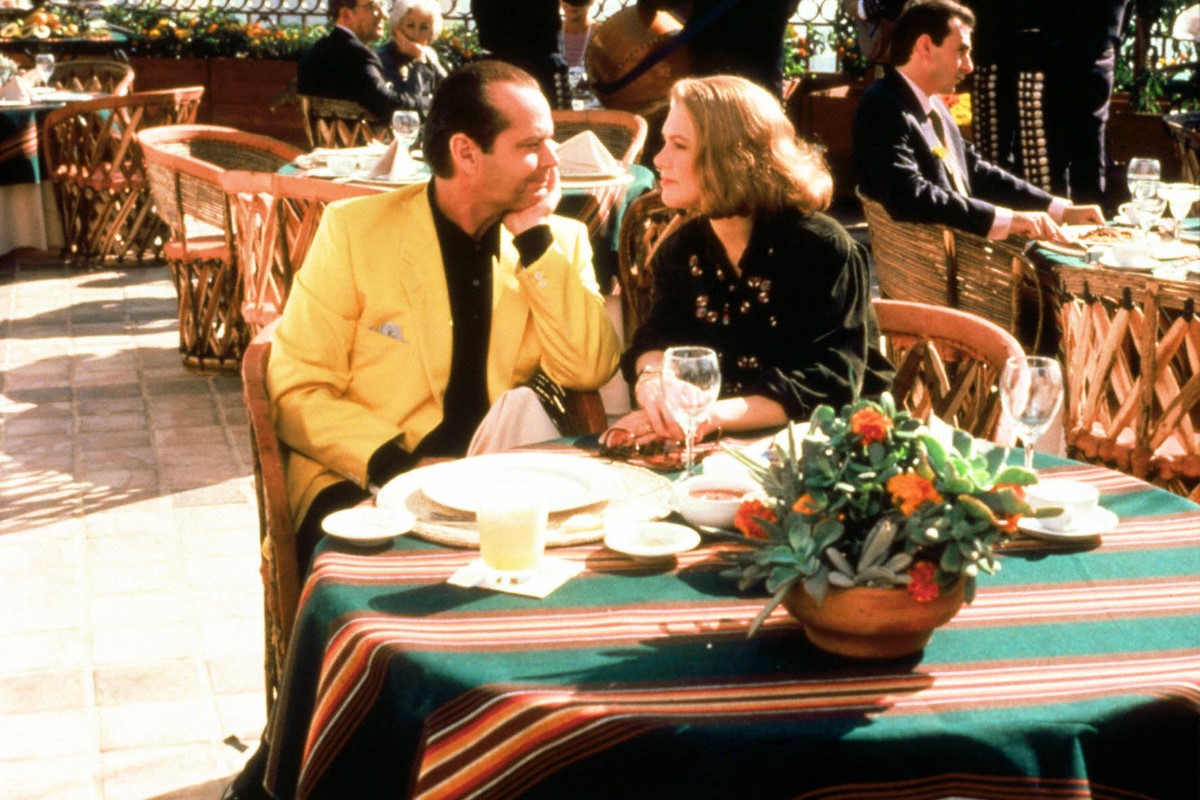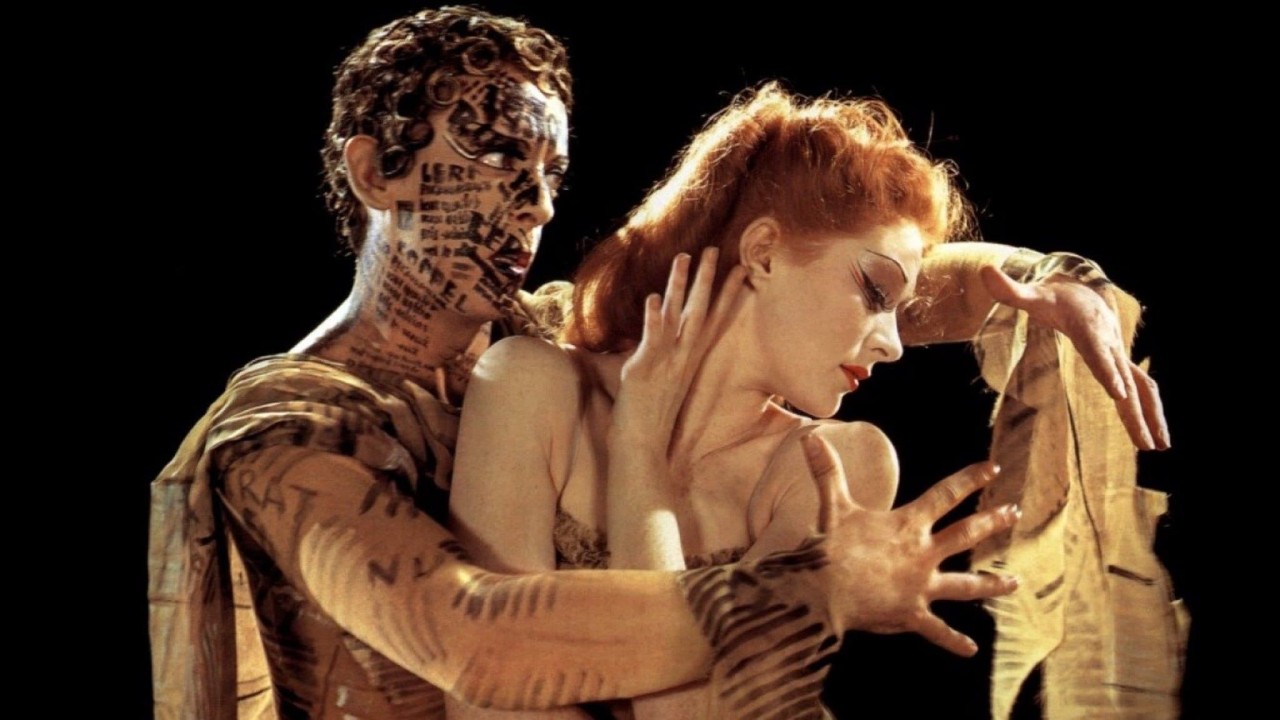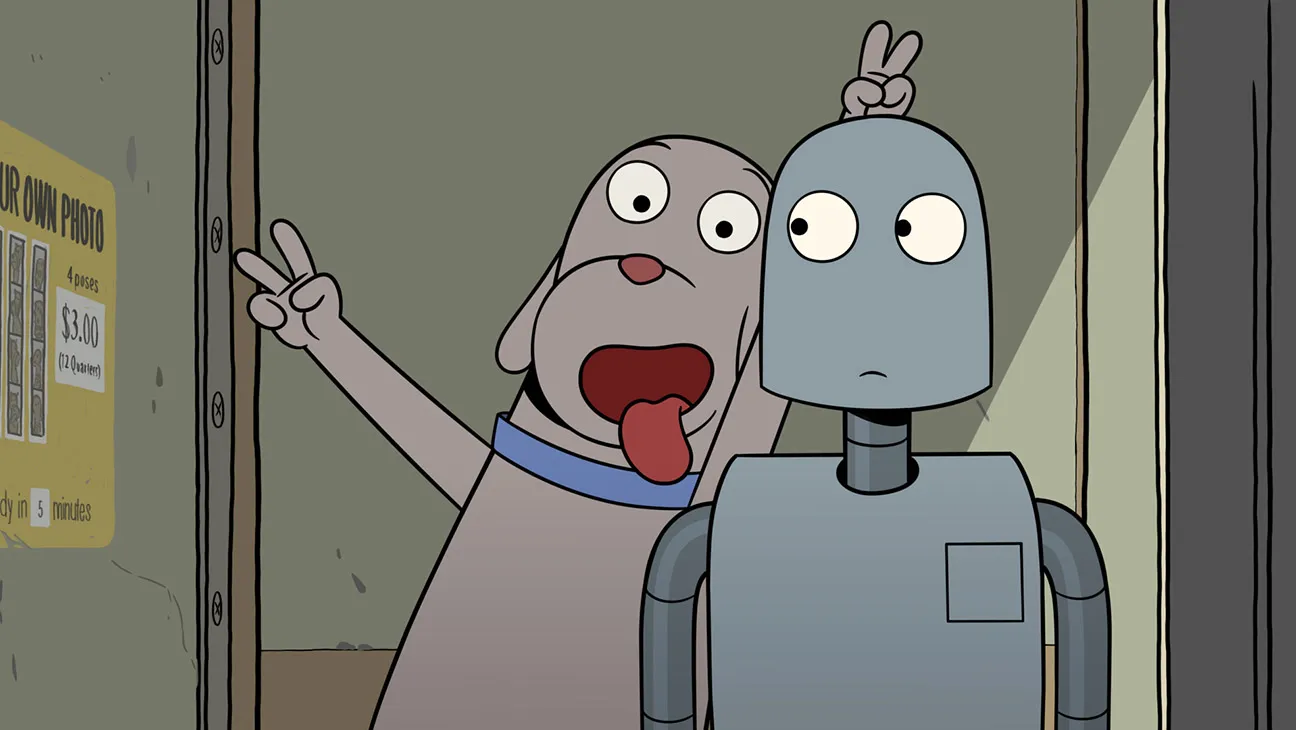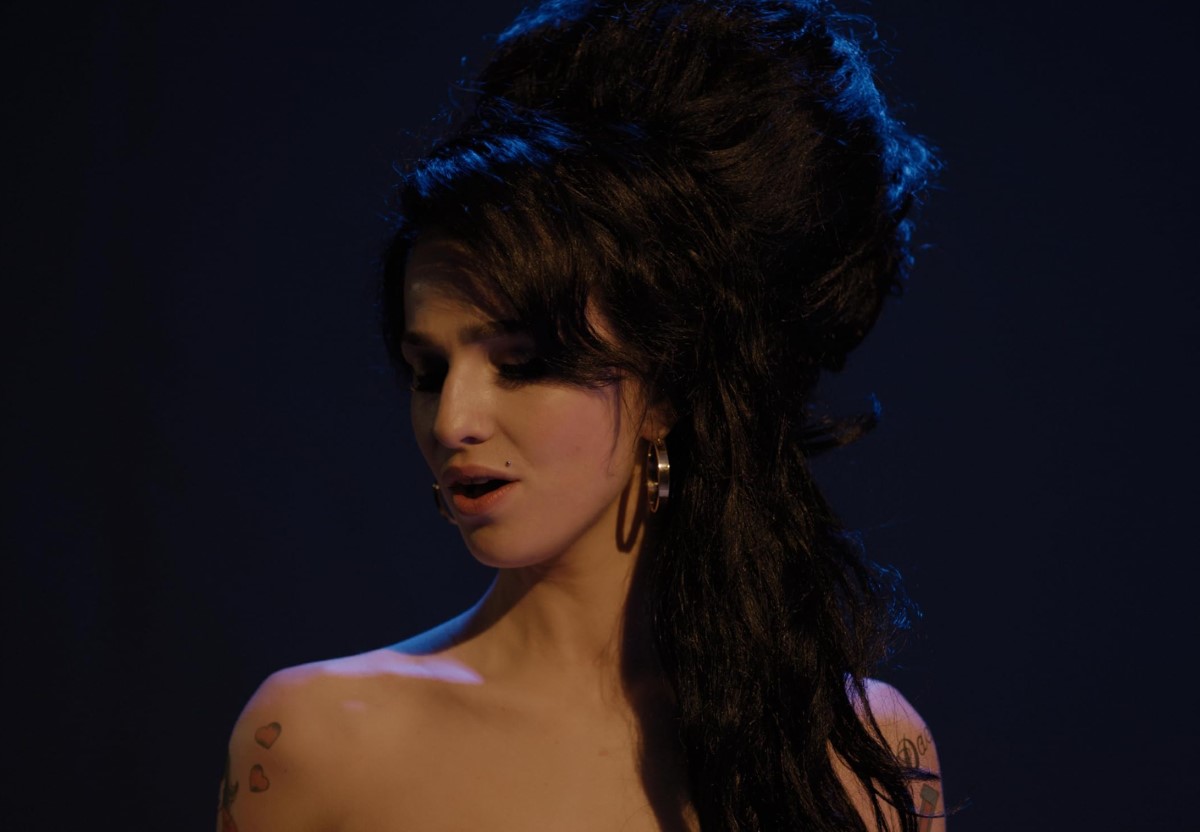by Pauline Kael
If John Huston’s name were not on Prizzi’s Honor, I’d have thought a fresh new talent had burst on the scene, and he’d certainly be the hottest new director in Hollywood. The picture has a daring comic tone—it revels voluptuously in the murderous finagling of the members of a Brooklyn Mafia family, and rejoices in their scams. It’s like The Godfather acted out by The Munsters, with passionate, lyrical arias from Italian operas pointing up their low-grade sentimentality. The 1982 novel, by Richard Condon, is a lively, painless read. His riffs about the corruption of American business and politics have a rote paranoia—they have no sting—but the characters are entertainingly skewed, and the story moves along and keeps you smiling. The movie does something more. When it’s over, you may think of slight resemblances to Beat the Devil and The Maltese Falcon, but its tone is riper. The behavior on the screen is bizarrely immoral, but it has the juice of everyday family craziness in it. And the zest that goes into the Prizzis’ greediest swindles is somehow invigorating. You’d think this movie the work of a young director because of the elation you feel while it’s on, and afterward, too. Even The Man Who Would Be King didn’t have the springiness that this has. The only thing about Prizzi’s Honor that suggests a veteran director, or even hints at Huston’s age (he’s seventy-eight), is the assurance of his control. He directed this movie (his fortieth) on pure instinct—on the sum of everything he knows. It’s as if his satirical spirit had become irrepressible—the devil in him made him do it.
Huston has a cast of devil’s helpers, who have been coached in the jerky rhythms and combative dialect of Sicilian Brooklynese by the actress-playwright Julie Bovasso. She played John Travolta’s mother in Saturday Night Fever and its sequel, and that’s who they talk like. They sound like truculent trolls. As Charley Partanna, the enforcer (i.e., hit man) for the brotherhood, Jack Nicholson has added a facial effect: his upper lip puffs out and curls under, which thickens Charley’s speech. (When he’s fully in character, he’s frog-faced and fishy-eyed, like a blown-up Elisha Cook, Jr.) Charley is a loyal and dedicated company man, but he’s not too sharp; he’s like a hardhat who’s only good at his trade—he needs to be cranked up to think. And Nicholson’s performance is a virtuoso set of variations on your basic double take and traditional slow burns. At times, Charley is like Jackie Gleason’s vain Ralph Kramden in “The Honeymooners”: he seems to want to waddle and shake more rolls of flesh than he’s got. (Like Kramden, he wants to occupy a bigger space in the world.) Then he’ll go limp and lacklustre, like Art Carney’s Ed Norton. Nicholson’s Charley plugs the “Honeymooners” kind of ordinariness into this Mafia world. And when he falls for a West Coast girl—a Polish blonde, Irene (Kathleen Turner), whom he meets at the Prizzi wedding that opens the movie—he’s like a man conked out by a truckload of stardust. He’s gaga. But Nicholson doesn’t overdo his blurred expressions or his uncomprehending stare; he’s a witty actor who keeps you eager for what he’ll do next. There are reasons for audiences’ good will toward him: he’ll do anything for the role he’s playing, and he has a just about infallible instinct for how far he can take the audience with him.
Charley’s essential average-guyness is the movie’s touchstone: this is a baroque comedy about people who behave in ordinary ways in grotesque circumstances. The Condon book is a takeoff on The Godfather, and Huston follows it right down to putting a spin on the details (like the quick glimpse of the wedding couple, so you can see that the bridegroom is shorter than the bride), but the parody isn’t too broad—not even with Nicholson’s inflated upper lip complementing Brando’s pushed*out lower lip. (In a scene in which Charley, the romantic clod, is told that he is to be the next head of the family, Nicholson produces a small, eye-rolling flourish: for an instant—a passing shade of thought—he sees himself as Brando, the don.)
The title is, of course, satiric. The movie is about what the Prizzis do in the name of honor. Old Don Corrado Prizzi (William Hickey) is a shrunken little man, ghouly and wormy, with tiny, shocking bright eyes. These slitted, almost closed eyes are so alive they jump out at you. (They’re like the director’s eyes—they’re the soul of the movie.) At eighty-four, this slippery master chiseller snoozes most of the time, but he still runs the mob, and he’s plotting his “monument”—a banking maneuver that should net the family some seventy million dollars. Hickey, an esteemed New York acting coach, actually in his fifties, has always had a special energy, and his mock seriousness here is just what the mummified old don needs. Don Corrado can barely walk anymore (he shuffles), but he lives to rook people, and Hickey makes you feel the mean joy he takes in it. When the don wants to say something, he doesn’t speak, exactly—he is so much into his own rhythms that he singsongs his remarks. But age hasn’t softened him. And an old don has an advantage that other oldsters don’t have: when this little geezer gives orders to the members of his family, they obey.
Don Corrado’s two sons are big men. The firstborn, Dominic (Lee Richardson), who’s in his sixties, runs the dirty side of the operations; the younger, better-educated, and slicker Eduardo (Robert Loggia), who’s in his fifties, handles the “legitimate” investments and mingles with financial leaders and high-ranking men in government. Richardson and Loggia play their roles just tilted enough for you to register what it’s like for men Dominic’s and Eduardo’s ages to be dominated—still—by their father: it keeps all their childhood tensions going.
The member of the family who is closest in spirit to the tricky old don is his granddaughter Maerose (Anjelica Huston), whose eyes are never at rest, either. Dominic, Maerose’s rigid-minded father, has made her a family outcast, because some years earlier, when she and Charley were engaged and got into a scrap, she took off in a drunken rage and had an affair. She has been exiled to Manhattan, where she works as an interior decorator, but she’s as busy plotting as the don himself. As Anjelica Huston plays her, the raven-haired Maerose is a Borgia princess, a high-fashion Vampira who moves like a swooping bird and talks in a honking Brooklynese that comes out of the corner of her twisted mouth. Anjelica Huston seems to have grown into her bold features: she’s a flinty beauty here—she has the imperiousness of a Maria Callas or a Silvana Mangano. And, with that Brooklyn cabbie’s diction, and Maerose’s fixation on vengeance against her father, Anjelica Huston is an inspired comedienne, especially when she parodies penitence and sidles into a room dolorously, her head hanging on her shoulder. The stunning Maerose loves scandalizing the family, and comes to the wedding—the bride is her younger sister—in a scarlet-banded, one-shouldered black gown. Maerose has more in her face than anyone else has; she has irony and the strangeness of what’s hidden. She’s like a bomb ticking away in the background of the movie.
By contrast, Kathleen Turner’s ravishingly pretty Irene seems pallid. Turner has built up a lot of audience good will, too, and she has her moments: Irene’s intonations are hilariously ritualized when, after participating in a kidnap and a murder, she chirps “See you at dinner” to Charley and pecks him like a suburban housewife as he drives off with the kidnap victim. But her role doesn’t really develop, and it suffers from an omission: Irene needs a scene to show the shift in her from the woman who’s playing Charley for a sap—the woman who smiles to herself when she’s got him hooked—and the woman who warms to the adoration of such a big man in the Mafia. (Charley is the kind of romantic who, after they’ve declared their love for each other, in a swank Mexican restaurant in L.A., takes note of what the orchestra is playing and says, “This is gonna be our song.”) And Turner is at a disadvantage: Irene isn’t from Brooklyn and doesn’t have the chance to talk in the clan’s comic lingo.
The central group is completed by Charley’s father, Angelo “Pop” Partanna (John Randolph), who is the Prizzis’ consigliere and Don Corrado’s closest friend. As Condon described Pop, his “sweetness and amiable good cheer about murder and corruption were legendary in the environment,” and that’s how Randolph plays him. He’s always beaming, and when he looks at Charley, the hit man, the crinkles around his eyes radiate all over his face: there never was a father who took greater pleasure in his son. When the two are together, we see the father-son relationship in its ideal form. These two confide in each other the way fathers and sons do in storybooks for boys. I don’t think Randolph has ever done anything this mellow before: Pop is overflowing with happiness, and when, toward the end, the kidnap and killing (which are tied in with the banking maneuver) cause unforeseen troubles, the childlike anxiety in his face suggests a perturbed saint.
It’s impossible to say who’s happier—Pop, who dotes on his son, or Don Corrado, who has always had his own way. Or the audience. I found myself laughing all the way through. Though some people don’t respond to the movie at all, laughter seems to bubble up in most of us. Probably that’s because characters like Pop and the don are only slightly warped versions of other doting parents, other tyrants. It’s the context of Mafia connivery that makes their happiness, like Charley’s romanticism, seem blissfully silly. (Being a mobster appears to produce the same result as a lobotomy: some vital connection in the brain is severed.)
Huston has made a character comedy out of Condon’s prankish satire of American corruption. He has been so confident and free that he has included moviemaking jokes, like the use of obvious stock shots of planes whipping back and forth across the country to represent Charley and Irene carrying on their coast-to-coast romance. The characters come equipped with certain eccentricities of the “environment,” such as the habit—apparently developed among people who make inordinate amounts of money—of saying “a dollar” when they mean a thousand dollars. When they refer to seven hundred and twenty dollars, they’re actually talking about heavy cash. Except for the failure to round out Irene’s character, the script, by Condon and, later, Janet Roach (who worked on the structuring of the scenes), is a beauty, and the Alex North score, with its lush, parodistic use of Puccini, and some Rossini, a little Verdi, and a dash of Donizetti, too, actively contributes to the whirling texture of the scenes. Even the musical jokes that you’re not quite conscious of work on you, and the music seems to bring out the lustre of Andrzej Bartkowiak’s cinematography. Everything in this picture works with everything else—which is to say that John Huston has it all in the palm of his big, bony hand.
You can feel a prickly excitement in the theatre. It’s the kind of excitement that makes you say, “God, I love movies”—or, at least, “God, I love this movie.”
The New Yorker, July 1, 1985






1 thought on “Prizzi’s Honor (1985) | Review by Pauline Kael”
I love this film. It’s the best thing I think that Nicholson has done, the amoral, careful killer who treats each kill purely like a job of work. And Don Corrado, an implacable force for evil, surrounded by plants. Death in the midst of continous growth.